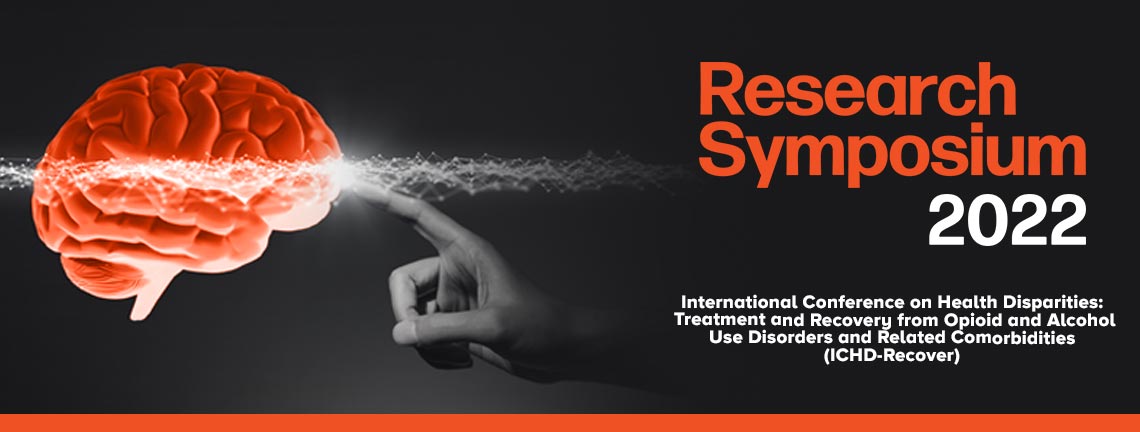
Posters
Presentation Type
Poster
Discipline Track
Community/Public Health
Abstract Type
Research/Clinical
Abstract
Background: Depression and anxiety are two of the most common mental health conditions afflicting a wide range of populations. They have been found to cause not only mental distress but also lead to poorer health outcomes. Research has sought to find the causes and risk factors regarding these conditions to better prevent their development and treat them adequately. Religions and faith, measured in various forms have been shown to both attenuate or exaggerate these effects. This research seeks to identify how self-reported faith was shown to be associated with the development and severity of depression and anxiety during the early months of the pandemic.
Methods: Using the COVID-19 Impact on Health and Well-being Survey (IHWS) created by members of UTRGV. Validated instruments (FAITH scale, PHQ9 and GAD7) were used to construct faith factors and depression and anxiety measures. Descriptive statistics were created for all covariates and stratified by faith favors. Chi-square analysis was performed to examine the association between all covariates and faith factors. A final model using binary logistic regression explored how the self-reported faith factors were associated with anxiety and depression adjusted for all other covariates. An alpha of 0.05 was used to determine significance unless otherwise noted. SAS 9.4 was used to perform all analysis.
Results: The majority of respondents were female (n=485, 78.6%), Hispanic (n=349, 56.0%), and college graduates (n=472, 75.9%). Overall, the proportion of moderate to severe depression and anxiety 9.6% and 19.2% respectively. Faith Factors (self-reported faith intensity, service attendance and weekly hours of prayer/meditation) were not associated with depression. Service attendance was associated with reduced anxiety in adjusted and unadjusted analysis. The odds of moderate to severe anxiety was 103% higher (OR=2.02 95% CI 1.12 = 3.70) for those who attended services monthly or less versus those who attended weekly or more.
Discussion: Prior research has shown that positive faith and religious experiences generally attenuate depression and anxiety. This research found during the pandemic positive faith expression, service attendance and weekly prayer and meditation didn’t attenuate depression, but weekly or more service attendance did reduce moderate to severe anxiety.
Recommended Citation
Kahsai, Keren; Machiorlatti, Michael; Robledo, Candace; Clark, Loren; and George, Deepu, "Exploration of factors in faith and their association with depression and anxiety during the COVID-19 pandemic" (2023). Research Symposium. 60.
https://scholarworks.utrgv.edu/somrs/2022/posters/60
Included in
Exploration of factors in faith and their association with depression and anxiety during the COVID-19 pandemic
Background: Depression and anxiety are two of the most common mental health conditions afflicting a wide range of populations. They have been found to cause not only mental distress but also lead to poorer health outcomes. Research has sought to find the causes and risk factors regarding these conditions to better prevent their development and treat them adequately. Religions and faith, measured in various forms have been shown to both attenuate or exaggerate these effects. This research seeks to identify how self-reported faith was shown to be associated with the development and severity of depression and anxiety during the early months of the pandemic.
Methods: Using the COVID-19 Impact on Health and Well-being Survey (IHWS) created by members of UTRGV. Validated instruments (FAITH scale, PHQ9 and GAD7) were used to construct faith factors and depression and anxiety measures. Descriptive statistics were created for all covariates and stratified by faith favors. Chi-square analysis was performed to examine the association between all covariates and faith factors. A final model using binary logistic regression explored how the self-reported faith factors were associated with anxiety and depression adjusted for all other covariates. An alpha of 0.05 was used to determine significance unless otherwise noted. SAS 9.4 was used to perform all analysis.
Results: The majority of respondents were female (n=485, 78.6%), Hispanic (n=349, 56.0%), and college graduates (n=472, 75.9%). Overall, the proportion of moderate to severe depression and anxiety 9.6% and 19.2% respectively. Faith Factors (self-reported faith intensity, service attendance and weekly hours of prayer/meditation) were not associated with depression. Service attendance was associated with reduced anxiety in adjusted and unadjusted analysis. The odds of moderate to severe anxiety was 103% higher (OR=2.02 95% CI 1.12 = 3.70) for those who attended services monthly or less versus those who attended weekly or more.
Discussion: Prior research has shown that positive faith and religious experiences generally attenuate depression and anxiety. This research found during the pandemic positive faith expression, service attendance and weekly prayer and meditation didn’t attenuate depression, but weekly or more service attendance did reduce moderate to severe anxiety.

